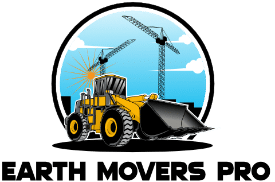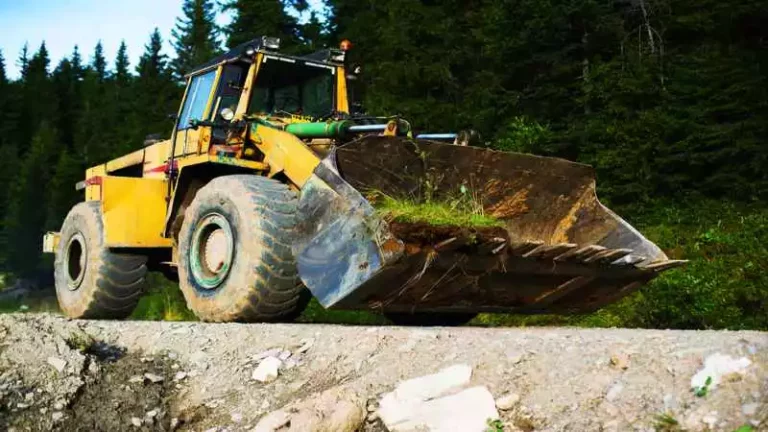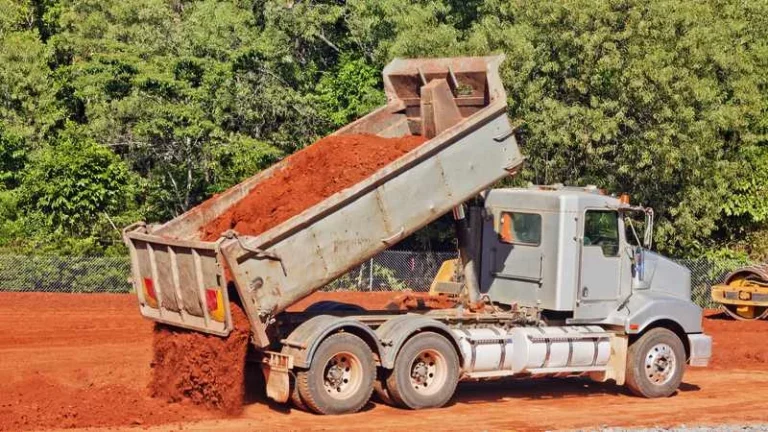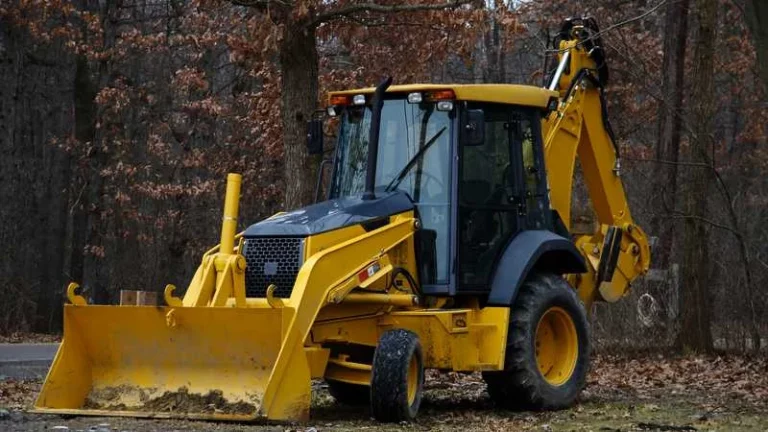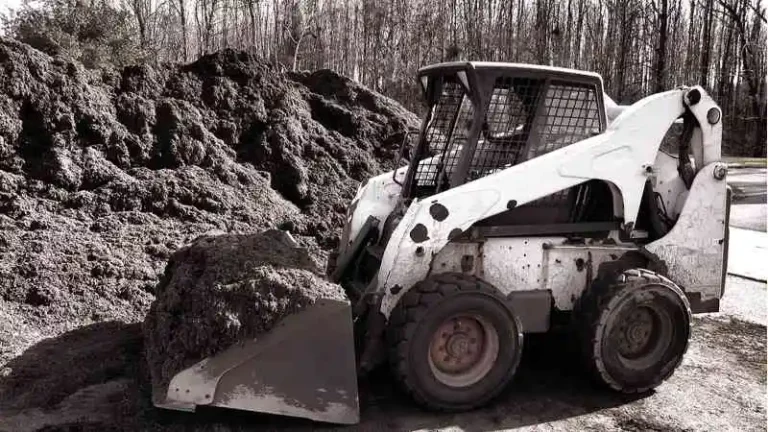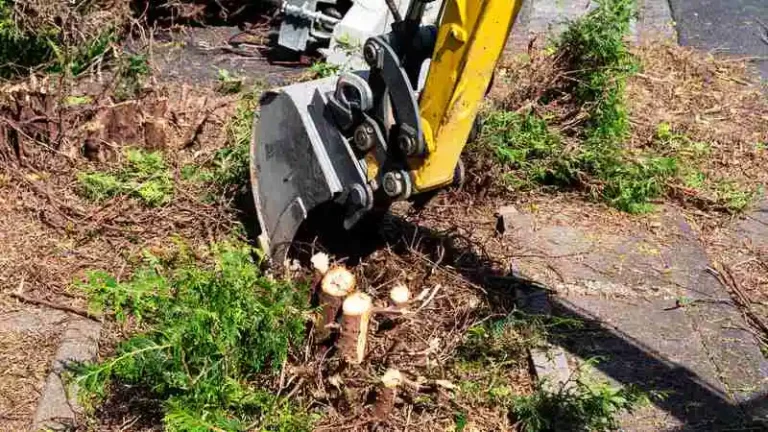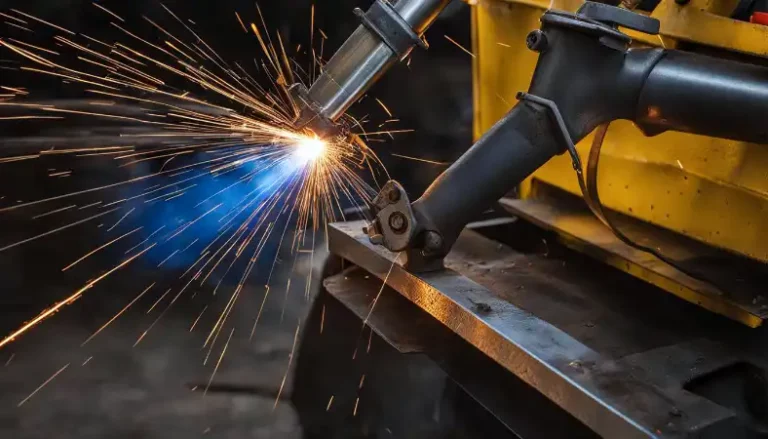Excavators and diggers are heavy construction equipment commonly used in various projects, including construction, mining, and landscaping. Despite their similarities, these machines significantly differ in design, functionality, and usage.
Both excavators and diggers have different designs, functionalities, and uses. The better option depends on your specific needs. Understanding the differences can help you decide which machine to choose for your construction or excavation project.
An excavator is a heavy-duty machine with a long arm, called a boom, and a bucket attached at the end. It is used for digging and lifting heavy materials, such as rocks, soil, and debris. On the other hand, a digger, also known as a backhoe loader, combines a tractor and a backhoe used for digging and excavation work. This article will delve deeper into the differences between excavators and diggers and explore which one may be better suited for your specific needs.
Overview of Excavators and Diggers
Excavators and diggers are two types of heavy construction equipment used for digging, excavation, and lifting operations. An excavator is a large machine with a long arm and bucket attached at the end, while a digger combines a tractor and a backhoe. Both machines are used in various construction and excavation projects, including construction, mining, and landscaping.
Excavators are typically larger and more powerful than diggers, and they are designed for heavier-duty tasks, such as mining and demolition. They have hydraulic systems that allow precise arm and bucket control, making them ideal for digging deep holes or removing large amounts of soil. Conversely, diggers are smaller and more versatile, making them better suited for smaller construction projects or landscaping tasks.
Although their differences in design and functionality, excavators and diggers are important equipment in the construction industry. Understanding their differences can help you determine which one is better suited for your specific needs.
Design and Structure Differences
The design and structure of excavators and diggers are significantly different. Excavators are large, heavy-duty machines with a long arm and bucket at the end, while diggers are smaller and more compact. The arm of an excavator is mounted on a rotating platform known as the house, which allows it to swing 360 degrees, providing greater reach and flexibility.
In contrast, the arm of a digger is mounted on the back of a tractor, with a small bucket at the end that can be used for digging, scooping, and lifting. The bucket of a digger is typically smaller than that of an excavator and is usually designed for digging shallow holes or trenches.
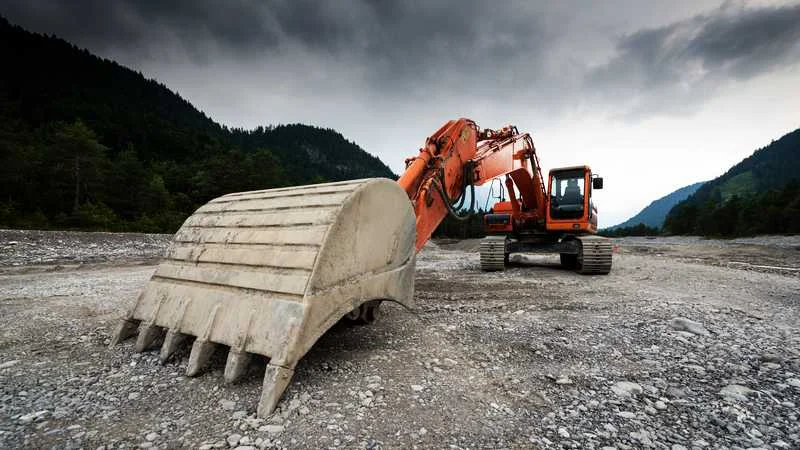
Another significant difference between the two machines is their mobility. Excavators are typically mounted on tracks or wheels, which provide greater stability and maneuverability on rough terrain. In contrast, diggers are usually equipped with wheels, making them more suitable for smooth surfaces. Excavators are designed for heavy-duty excavation and mining tasks, while diggers are better suited for smaller-scale construction projects and landscaping.
Functionality and Usage
The functionality and usage of excavators and diggers are also significantly different. Excavators are designed for heavy-duty excavation and demolition tasks, while diggers are more versatile and can be used for various tasks.
Here Are Some Specific Functionalities And Uses Of Excavators:
- Digging deep holes or trenches
- Removing large amounts of soil or debris
- Demolishing buildings or structures
- Lifting heavy materials, such as rocks or steel beams
- Mining and quarrying operations
Here Are Some Specific Functionalities And Uses Of Diggers:
- Digging shallow holes or trenches
- Backfilling or leveling small areas
- Excavating for foundations or footings
- Lifting and moving smaller loads of materials
- Snow removal and landscaping tasks
Pros and Cons of Excavators
Excavators have a range of pros and cons that are important to consider when deciding whether they are the right machine for your project. Here are some of the main advantages and disadvantages of using an excavator:
Pros:
- Ability to handle heavy-duty excavation and demolition tasks
- Versatility in terms of the range of attachments available, such as hammers, grapples, and buckets
- Greater reach and flexibility due to the 360-degree rotation of the arm
- Ability to operate on rough terrain and in challenging conditions, such as mining operations
Cons:
- Higher cost compared to other types of heavy equipment
- Large size and weight, which can limit mobility in certain areas
- High fuel consumption, which can be expensive
- Requires skilled operators to operate the machine safely and effectively
Pros and Cons of Diggers
Diggers, also known as backhoe loaders, have a range of pros and cons that are important to consider when deciding whether they are the right machine for your project. Here are some of the main advantages and disadvantages of using a digger:
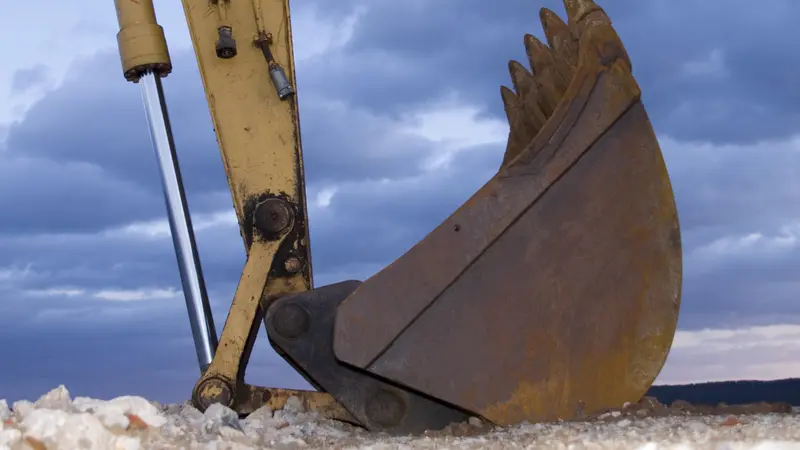
Pros:
- Versatility in terms of the range of tasks that can be performed, such as digging, lifting, and leveling
- Smaller size and greater mobility compared to excavators, making them better suited for use in confined spaces or on smaller projects
- Lower cost compared to excavators and other types of heavy equipment
- Easier to operate than excavators, requiring less specialized training
Cons:
- Less powerful and less suited for heavy-duty excavation and demolition tasks
- Limited reach and flexibility compared to excavators, with a shorter arm that is less able to reach deep holes or trenches
- Smaller bucket size compared to excavators, which can limit the amount of material that can be moved at one time
- Limited use in challenging conditions, such as mining operations or rough terrain
Which is Better for Building Construction?
Both excavators and diggers have their strengths and weaknesses in building construction, and the better option depends on the project’s specific needs. Here are some factors to consider when deciding which machine is better suited for building construction:
Excavators:
- Ideal for digging deep holes for foundations or footings
- Better suited for demolition tasks, such as tearing down existing structures
- Greater reach and flexibility for tasks that require digging or lifting at a height
- Ability to handle heavy-duty tasks, such as digging basements or creating building platforms
Diggers:
- Smaller size and greater mobility make them better suited for use on small construction sites
- Versatility in terms of the range of tasks that can be performed, such as digging, lifting, and leveling
- Ability to navigate tight spaces, making them ideal for construction projects in urban areas
- Lower cost compared to excavators, making them a more affordable option for smaller construction projects
Which is Better for Mining and Landscaping?
Regarding mining and landscaping, excavators and diggers have different strengths and weaknesses. Here are some factors to consider when deciding which machine is better suited for mining and landscaping:
Excavators:
- Ability to handle heavy-duty tasks, such as mining and quarrying operations
- Versatility in terms of the range of attachments available, such as rock breakers, rippers, and buckets
- Greater reach and flexibility for tasks that require digging or lifting at height, such as creating terraces or leveling hillsides
- Ability to operate on rough terrain and in challenging conditions, such as in quarries or open-pit mining operations
Diggers:
- Versatility in terms of the range of tasks that can be performed, such as digging, lifting, and leveling
- Smaller size and greater mobility make them better suited for landscaping tasks on residential or small commercial properties
- Ability to navigate tight spaces, making them ideal for landscaping projects in urban areas
- Lower cost compared to excavators, making them a more affordable option for smaller-scale mining and landscaping projects
Factors to Consider When Choosing Between Excavators and Diggers
Choosing between excavators and diggers can be challenging, as both machines have strengths and weaknesses depending on the project’s specific needs. Here are some key factors to consider when deciding which machine to choose:
- Project Size: The size of the project can be a determining factor in the choice between excavators and diggers. Excavators are better suited for larger-scale projects that require heavy-duty excavation and demolition work, while diggers are better suited for smaller-scale projects or those with limited space.
- Available Budget: Excavators are generally more expensive than diggers, so the available budget can decide. If the project requires heavy-duty excavation work, an excavator may be the best option, but if the project is smaller in scale, a digger may be a more cost-effective choice.
- Terrain and Site Conditions: The terrain and site conditions can also impact the choice between excavators and diggers. Excavators are better suited for challenging terrain or rough conditions, while diggers are more maneuverable and better suited for use on flat terrain.
- Required Attachments: Both excavators and diggers offer a range of attachments, such as buckets, hammers, and grapples, which can impact the choice between the two machines. If the project requires a specific attachment only available on one machine, that machine may be the better option.
- Operator Skill: The operator’s skill level can also determine the choice between excavators and diggers. Excavators require more specialized training and experience to operate safely and effectively, while diggers are generally easier.
Cost Comparison
Cost is an important factor to consider when choosing between excavators and diggers. Here is a cost comparison between the two machines:
Excavators:
- Purchase cost: Excavators are more expensive than diggers, with prices ranging from tens to hundreds of thousands of dollars depending on the size and type of machine.
- Fuel cost: Excavators consume more fuel than diggers due to their larger size and power, resulting in higher fuel costs.
- Maintenance cost: Excavators require more maintenance than diggers, including regular maintenance of the hydraulic system, engine, and tracks or wheels.
Diggers:
- Purchase cost: Diggers are generally less expensive than excavators, ranging from tens of thousands of dollars to around $100,000, depending on the size and type of machine.
- Fuel cost: Diggers consume less fuel than excavators due to their smaller size and lower power, resulting in lower fuel costs.
Maintenance cost: Diggers require less maintenance than excavators, including regular maintenance of the engine, hydraulic system, and wheels.
